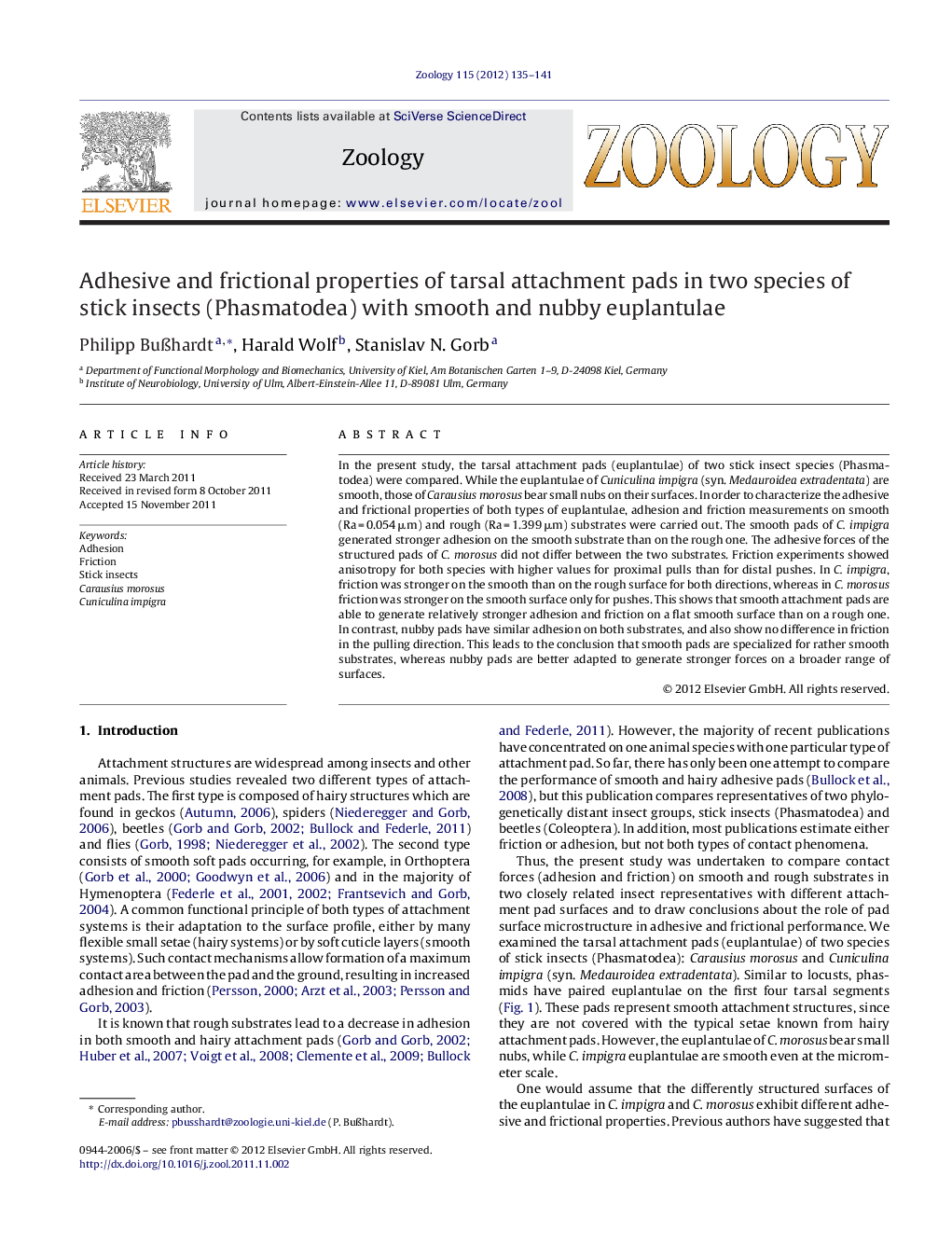| Article ID | Journal | Published Year | Pages | File Type |
|---|---|---|---|---|
| 2791163 | Zoology | 2012 | 7 Pages |
In the present study, the tarsal attachment pads (euplantulae) of two stick insect species (Phasmatodea) were compared. While the euplantulae of Cuniculina impigra (syn. Medauroidea extradentata) are smooth, those of Carausius morosus bear small nubs on their surfaces. In order to characterize the adhesive and frictional properties of both types of euplantulae, adhesion and friction measurements on smooth (Ra = 0.054 μm) and rough (Ra = 1.399 μm) substrates were carried out. The smooth pads of C. impigra generated stronger adhesion on the smooth substrate than on the rough one. The adhesive forces of the structured pads of C. morosus did not differ between the two substrates. Friction experiments showed anisotropy for both species with higher values for proximal pulls than for distal pushes. In C. impigra, friction was stronger on the smooth than on the rough surface for both directions, whereas in C. morosus friction was stronger on the smooth surface only for pushes. This shows that smooth attachment pads are able to generate relatively stronger adhesion and friction on a flat smooth surface than on a rough one. In contrast, nubby pads have similar adhesion on both substrates, and also show no difference in friction in the pulling direction. This leads to the conclusion that smooth pads are specialized for rather smooth substrates, whereas nubby pads are better adapted to generate stronger forces on a broader range of surfaces.
